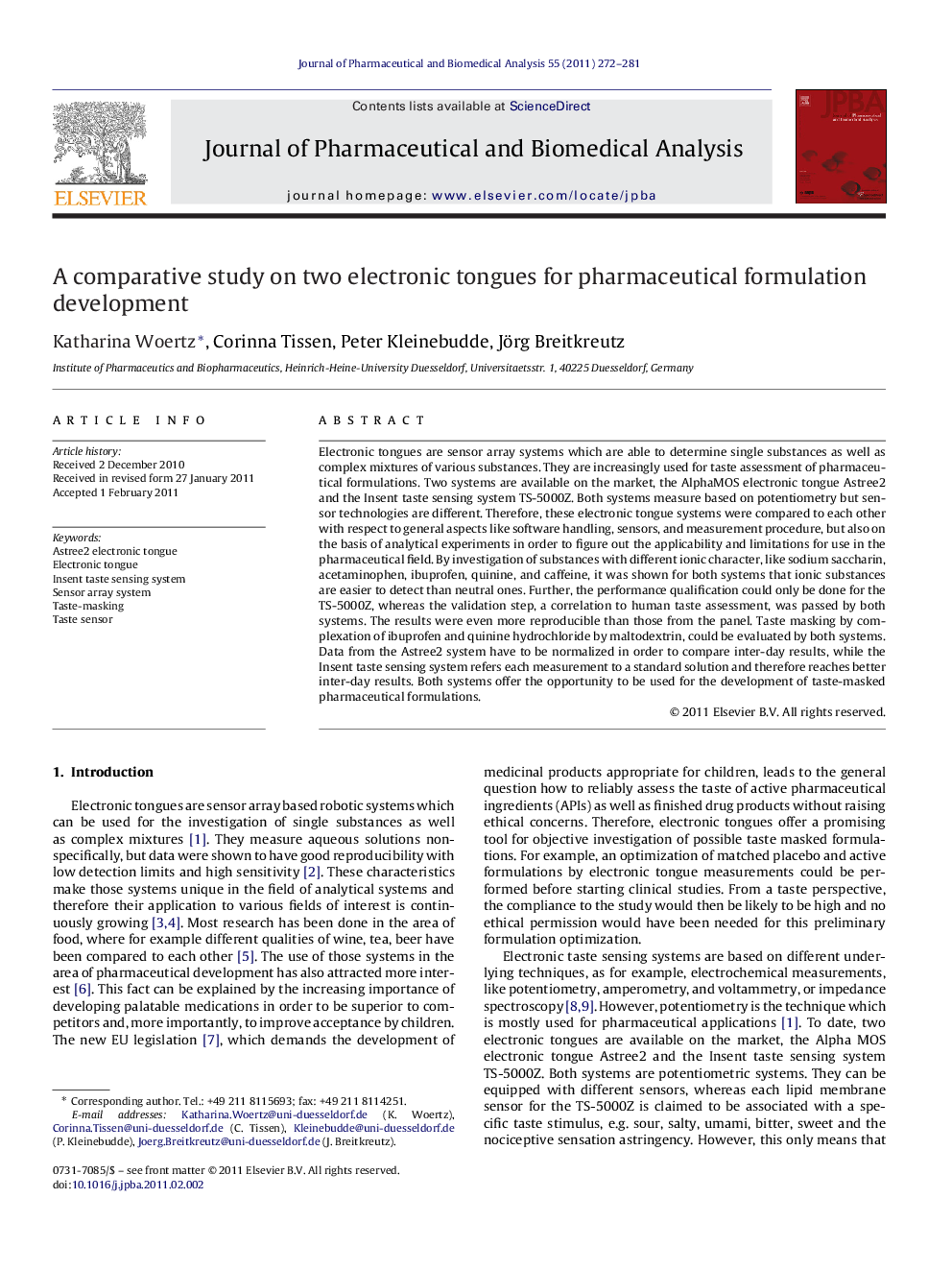| Article ID | Journal | Published Year | Pages | File Type |
|---|---|---|---|---|
| 1223130 | Journal of Pharmaceutical and Biomedical Analysis | 2011 | 10 Pages |
Electronic tongues are sensor array systems which are able to determine single substances as well as complex mixtures of various substances. They are increasingly used for taste assessment of pharmaceutical formulations. Two systems are available on the market, the AlphaMOS electronic tongue Astree2 and the Insent taste sensing system TS-5000Z. Both systems measure based on potentiometry but sensor technologies are different. Therefore, these electronic tongue systems were compared to each other with respect to general aspects like software handling, sensors, and measurement procedure, but also on the basis of analytical experiments in order to figure out the applicability and limitations for use in the pharmaceutical field. By investigation of substances with different ionic character, like sodium saccharin, acetaminophen, ibuprofen, quinine, and caffeine, it was shown for both systems that ionic substances are easier to detect than neutral ones. Further, the performance qualification could only be done for the TS-5000Z, whereas the validation step, a correlation to human taste assessment, was passed by both systems. The results were even more reproducible than those from the panel. Taste masking by complexation of ibuprofen and quinine hydrochloride by maltodextrin, could be evaluated by both systems. Data from the Astree2 system have to be normalized in order to compare inter-day results, while the Insent taste sensing system refers each measurement to a standard solution and therefore reaches better inter-day results. Both systems offer the opportunity to be used for the development of taste-masked pharmaceutical formulations.
